It is important to look ahead at the possible consequences of the current round of violence between Israel and Hamas.
Palestinian Authority (PA) President Mahmoud Abbas is likely to lose the trust of his Palestinian constituency, and possibly Israeli lawmakers, while Hamas will not only emerge from this conflict intact, but probably stronger and more legitimate in the eyes of Palestinians than ever before. Given that Abbas is the only leader Israelis will negotiate with, the future does not look bright for supporters of both sides.
As Israeli society and the Knesset become more hard-line, the possibilities for any solution to this conflict look grim. Israeli lawmakers certainly will not want to negotiate with Hamas, but it is not clear whether they are or have been willing to negotiate for peace with Abbas. Israel will have to make tough decisions over what type of state it wants to be.
Palestine’s Winners and Losers
First, it is important to note that what happens to the Gaza Strip happens to the West Bank. That is, Gaza and the West Bank are connected, figuratively and politically, by strong feelings of nationalism, collective struggle, resistance, sumud (steadfastness) and suffering.
One needs only to remember that the Gaza war did not begin in Gaza. The three Israeli hitchhikers’ (Naftali Frankel, Gilad Shaar and Eyal Yifrach) regrettable deaths occurred in the West Bank town of Hebron (which Palestinians refer to as Khalil), where arguably the most radical Israeli settler community claims to guard the Tomb of Abraham, and where clashes between violent settlers and rock-throwing Palestinians often break out.
Also, in order to understand why the PA will likely lose much credibility in this conflict, a bit of context is in order. Hamas, the Islamic Resistance Movement, was democratically elected in 2006, but was subsequently subjected to a campaign to undermine the movement by the Bush administration, Israeli leaders, the PA, the European Union (EU), the Central Intelligence Agency (CIA) and a Fatah faction led by Mohammed Dahlan.
The outcome of this election made it visibly clear to the Fatah-led PA that the Palestinian people viewed Hamas as the only group seriously striving for Palestinian rights and statehood, and Abbas, also known as Abu Mazen, felt threatened. Hamas won that battle. Dahlan’s campaign to cause disorder and thus flatten Hamas’s legitimacy in fact sparked a tiny civil war in Gaza, and prompted Hamas militants of the Izz ad-Din al-Qassam Brigades — the main fighting force in Gaza then and now — to take power and oust the PA from the Mediterranean coastal enclave.
Ayelet Shaked, a member of the Knesset’s ruling coalition — as also further evidence of the right-wing pressure on Netanyahu — explicitly called on her Facebook account for the IDF to violate jus in bello (laws in war) and declare war not on Hamas, but on the “Palestinian people.” She took it further and called for men, children and women to be slaughtered indiscriminately, the latter to ensure they do not give birth to “snakes.”
Abbas’ legitimacy crisis was — and still is — only exacerbated by his role as leader of the PA in the West Bank. The PA is, essentially, an Israeli proxy; though that is not to deny Abbas agency. The Oslo Accords codified this role into law, but Abbas is considerably weaker than his pre- and post-Oslo-era predecessor, Yasser Arafat; he lacks the legitimacy and charisma Arafat garnered through his leadership in the Palestine Liberation Organization (PLO). The many Palestinian Security Forces (PSF) work closely with the Israel Defense Forces (IDF) to curb terrorism, suppress dissent and control the Palestinian population. Palestinians recognize the irony in this, as evinced by their claim to face two occupations: the PA and IDF.
Abu Mazen’s search for legitimacy within this context found expression in the Hamas-Fatah unity pact, a deal Hamas also needed desperately and which seemed to shock the world in April. Most actors involved in the peace process were not unhappy with this outcome — save for Israeli Prime Minister Binyamin Netanyahu, who was furious, at least publicly. The EU and US watched closely but welcomed and decided to work with a unified Palestinian government, noting it was the only way to make peace between Israel and Palestine. Without Hamas and Fatah on the same page, it would be unlikely to make a peace agreement that Palestinians would see as legitimate.
The unity government, in fact, meant Hamas’ tacit acceptance of Israel’s existence, seeing as one cannot agree to negotiate with something that does not exist. Egypt’s squeeze on Gaza — which followed the Egyptian military’s ouster of the Muslim Brotherhood (a Hamas affiliate) and Mohammed Morsi — truly put pressure on Hamas to make peace in order to open Gaza for its populace. Abu Mazen saw an opening and took the opportunity.
Abbas gained considerably for his willingness to participate in this new government with Hamas, a group that most Palestinians know is weak, but admire for never caving to Israeli pressure and standing up for Palestinians when no one else will. It is important to note, however, there is a non-violent protest culture in Palestine, so it might be said that of the two main Palestinian power-brokers, Fatah and Hamas, the latter is the only group willing to take-up arms, while Palestinians must and do stand up for themselves on a regular basis.
Abbas’ Mistakes and Credibility
Abbas, having experienced temporary support for defying the Israelis and bringing Hamas into the peace camp, soon found that Netanyahu had other plans. Those plans did not include “negotiating with terrorists.” The prime minister denounced the government, and Israel ended a temporary settlement freeze. This is not, however, where Abbas went wrong.
As it took Abbas until the IDF’s “massacre” in Shejaiya to condemn Israel’s Gaza assault, Palestinians are not happy with him. Palestinians believe a ceasefire initially proposed by Egypt was not in their interests and would leave their situation in Gaza in an untenable status quo — a deathtrap. The Egyptian proposal was in Egypt and Israel’s interest, not theirs. Hamas, for rejecting this unilateral ceasefire, is again seen to be standing up for Palestinian interests when no one else will.
Abbas’ legitimacy crisis was — and still is — only exacerbated by his role as leader of the PA in the West Bank. The PA is, essentially, an Israeli proxy; though that is not to deny Abbas agency. The Oslo Accords codified this role into law, but Abbas is considerably weaker than his pre- and post-Oslo-era predecessor, Yasser Arafat.
President Abbas, after a week, has finally supported Hamas’ ceasefire demands. This could earn Abu Mazen temporary credibility with his people. Hamas, however, is likely to come out of this conflict intact, and will probably still get credit for the rejection of the Egyptian proposal, the publishing of its own, just demands and for standing up for the Palestinian people. Abbas will likely only gain slightly by supporting Hamas’ demands, and will come out of this even weaker, having alienated Netanyahu, for supporting Hamas’ demands; Palestinians, for cracking down on their protests in the West Bank; and Hamas, for not condemning the incursion.
Unfortunately, Palestinians in the West Bank might lose this war, big time. Netanyahu was cited in The New York Times in late June, as the violence was just beginning to intensify, calling to increase Israel’s presence in the West Bank. Indeed, Netanyahu reportedly stopped “pretending to support a Palestinian state,” as Ryan Grim and Paul Blumenthal reported in The Huffington Post. The Israeli prime minister remarked that the West Bank would not be given up under any circumstances. Even if Abbas had credibility, it is unlikely a peace deal would come of it.
Israel’s Winners and Losers
Israel is headed down a dangerous path. Most Israelis support a two-state solution and want peace. There is and has been a growing secular, leftist movement in Israeli society that advocates for peace and an end to occupation. Orthodox Jews, too, come out to loudly claim that there is a difference between Judaism and Zionism. Yet Israel’s single-district and low threshold electoral institutions give the smallest, most radical voices in the Jewish state significant power.
Examples of this dynamic abound. Foreign Minister Avigdor Lieberman’s party, Yisrael Beiteinu, has already broken away from Likud (its 2013 running mate) because Netanyahu refuses to “go all the way” and reassert control in Gaza. On these grounds, Lieberman voted against the Egyptian ceasefire proposal. Deputy Speaker of the Knesset Moshe Feiglin supports Lieberman’s sentiment, but urged Netanyahu to take Israel’s Gaza approach one-step further. Feiglin claimed Israel should take control of Gaza — after, of course, the Gazan population leaves, as he would not give them an option to stay. If these members of the ruling coalition were elected by only a minority view in Israel, then we should not expect the peace camp to remove them from office. Even if they were ousted in the next elections, we might not like who takes their place.
International scrutiny, a divided Israeli society and the Knesset — an Arab MK, for example, was forcibly removed from a meeting for shouting: “Your hands are stained with blood!” — only serve to divide the tiny Mediterranean state and possibly could mean electoral losses for Prime Minister Netanyahu, who must be popularly elected. The next leader might not be able to balance the divisive elements in the Knesset.
Moreover, it is fair to say that Israeli society loses from another round of violence. Israel is facing international scrutiny, with musicians refusing to play in the country amid calls for Boycott, Divestment and Sanctions (BDS); Americans have circulated a petition calling on the Obama administration to condemn the “apartheid state of Israel”; protests have erupted in East Jerusalem and Tel Aviv, with hate crimes on the rise and Israelis hunting for Palestinians in taxi cabs; and a major pro-peace camp contrasts sharply with the right-wing ruling coalition’s recent call to annex the West Bank. In response to such calls, the Yesh Atid party threatened to pull out of the coalition and topple the government.
All this serves to radicalize portions of Israel’s society. Gideon Levy delivered a horrifying account of a visit to Ashkelon and why he cannot return as testimonium. Israeli society’s promotion of a sick, twisted notion of “justice” seems to be drowning out the miraculously brave peace protesters, who are marginalized and shamed for standing up for Gaza and calling for an end to occupation.
Indeed, The New York Times posted a video in which an Israeli in Sderot in southern Israel, who was cheering with fellow Israelis as the Israeli Air Force (IAF) bombed Gaza, claimed to be a “little bit fascist” and wished the IAF would flatten Gaza City. Ayelet Shaked, a member of the Knesset’s ruling coalition — as also further evidence of the right-wing pressure on Netanyahu — explicitly called on her Facebook account for the IDF to violate jus in bello (laws in war) and declare war not on Hamas, but on the “Palestinian people.” She took it further and called for men, children and women to be slaughtered indiscriminately, the latter to ensure they do not give birth to “snakes.”
As international pressure mounts, and its society crumbles, Israel will be forced to make a decision. Its identity will either be settler-colonial — there are a number of settlers in the ruling coalition — or its official narrative: the only democratic, peace-loving state in the Middle East. At present, this official claim is vacuous.
The views expressed in this article are the author’s own and do not necessarily reflect Fair Observer’s editorial policy.
Support Fair Observer
We rely on your support for our independence, diversity and quality.
For more than 10 years, Fair Observer has been free, fair and independent. No billionaire owns us, no advertisers control us. We are a reader-supported nonprofit. Unlike many other publications, we keep our content free for readers regardless of where they live or whether they can afford to pay. We have no paywalls and no ads.
In the post-truth era of fake news, echo chambers and filter bubbles, we publish a plurality of perspectives from around the world. Anyone can publish with us, but everyone goes through a rigorous editorial process. So, you get fact-checked, well-reasoned content instead of noise.
We publish 2,500+ voices from 90+ countries. We also conduct education and training programs
on subjects ranging from digital media and journalism to writing and critical thinking. This
doesn’t come cheap. Servers, editors, trainers and web developers cost
money.
Please consider supporting us on a regular basis as a recurring donor or a
sustaining member.
Will you support FO’s journalism?
We rely on your support for our independence, diversity and quality.




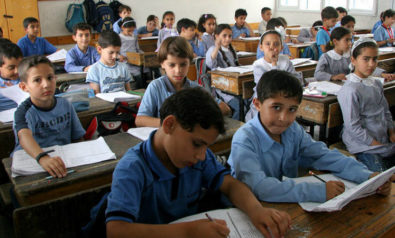

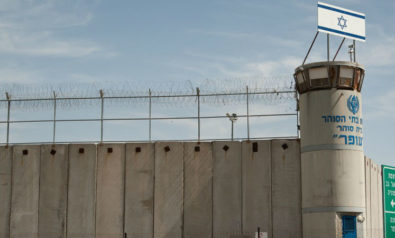

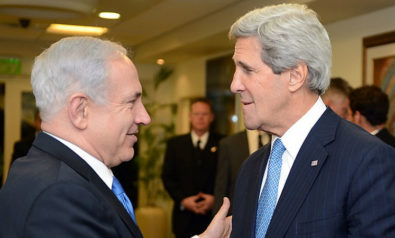


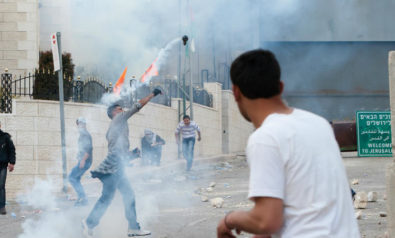
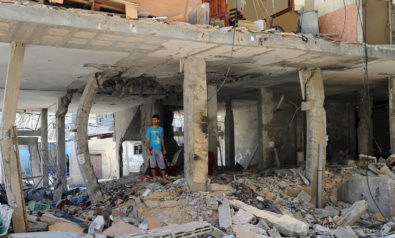

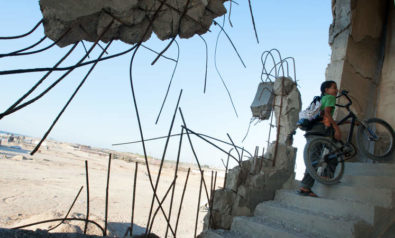

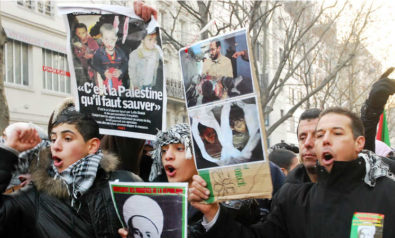
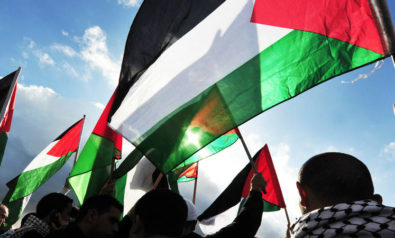

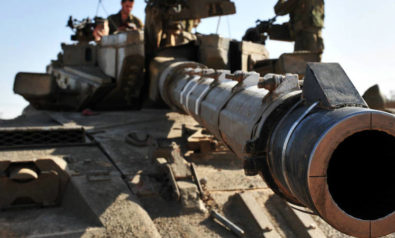
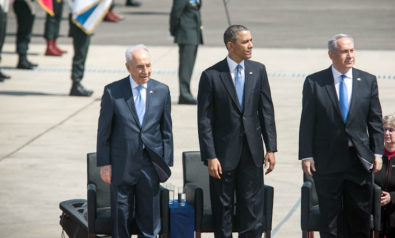
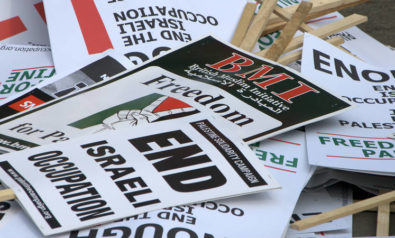
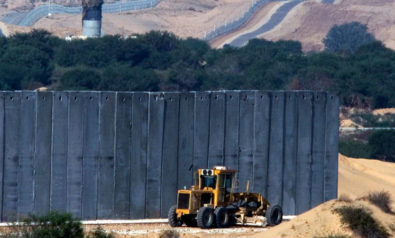
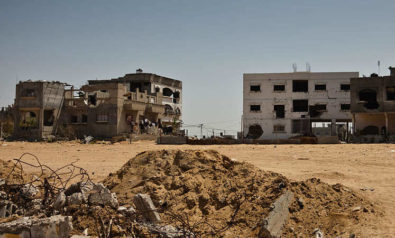

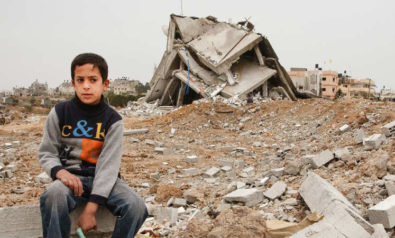
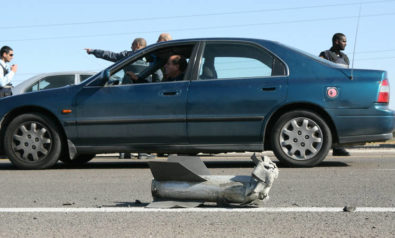
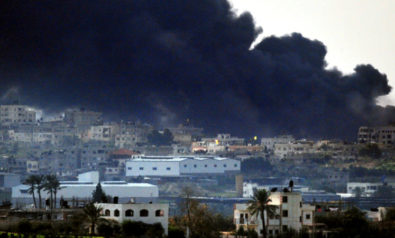
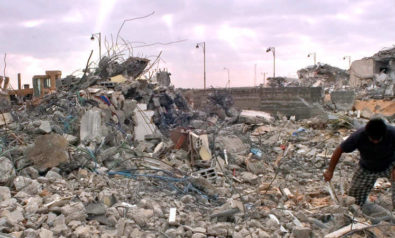
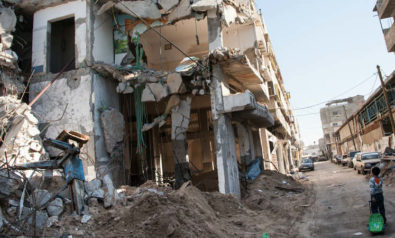


Comment
Is it any wonder that the government of Egypt has become an ally of Israel to present a common front to Hamas – an arm of the Muslim Brotherhood, the same organization that wreaked havoc in Egypt and earned the undying hatred of the majority of Egyptians who wish their country a place in the world of the 21st century and not of the 8th?
The emergence of militant Islamism among both Sunnis and Shi’ites and the call for all legislation to be based on the Koran as well as world-wide Jihad became as much a threat to “moderate” rulers throughout the Muslim world. The assassination of Egyptian President Anwar Sadat was a harbinger of the growing Jihadi threat and the desire to implement an Islamist solution wiping away the vestiges of Western and secular institutions everywhere in Muslim and Arab countries. Attempts to placate the Islamists in Egypt, Jordan, Algeria, Malaysia, Lebanon and elsewhere have only led to their increased strength.
Hamas is the Palestinian branch of the Muslim Brothers and Hizbollah is an Iranian puppet committed to a Shi’ite variety of the same world-wide jihadist call. Western politicians and so called Leftwing or “progressive” political forces urging or pressuring Israel to “negotiate” with these Jihadist terror organizations display a willful ignorance and simply refuse to acknowledge the reality of their violent heritage, fascist character and long term goals to destroy the West.
If we are to learn anything at all from history, it is that the Islamist concept of jihad was unequivocally understood as “violent holy war” against the infidels and not subject to interpretation. It remains a political weapon that has been used quite similarly by the last Ottoman Caliph, the Taliban, the Iranian mullahs, Al-Qaeda and rival extremist Sunni and Shi’ite clerics in Iraq today. It is still attractive to much extremist opinion in large parts of the Arab world, Chechniya, the Sudan, Pakistan and even in Indonesia. Its attraction throughout the 20th century for those autocratic and dictatorial European leaders (the Kaiser, Hitler, and Mussolini) who sought to become “Protectors of Islam” and “borrow” it, was to exploit its violent and evil appeal for their own purposes.
And in the current crisis in Gaza? Can anyone make sense of the State Department, President Obama and Secretary of State Kerry’s frantic efforts to save the prestige of the organization and rescue it from the same fate as the Muslim Brotherhood in Egypt? Has anyone of the tens of thousands of so called “progressives” in Leftists demonstrations in Europe not read the Charter of Hamas?…….
On the Destruction of Israel: “Israel will exist and will continue to exist until Islam will obliterate it, just as it obliterated others before it.” (Preamble)
On the Exclusive Moslem Nature of the Area: “The land of Palestine is an Islamic Waqf [Holy Possession] consecrated for future Moslem generations until Judgment Day. No one can renounce it or any part, or abandon it or any part of it.” (Article 11)
“Palestine is an Islamic land… Since this is the case, the Liberation of Palestine is an individual duty for every Moslem wherever he may be.” (Article 13)
Fight Israel with the Call to Jihad:
“The day the enemies usurp part of Moslem land, Jihad becomes the individual duty of every Moslem. In the face of the Jews’ usurpation, it is compulsory that the banner of Jihad be raised.” (Article 15)
“Ranks will close, fighters joining other fighters, and masses everywhere in the Islamic world will come forward in response to the call of duty, loudly proclaiming: ‘Hail to Jihad!’. This cry will reach the heavens and will go on being resounded until liberation is achieved, the invaders vanquished and Allah’s victory comes about.” (Article 33)
This is the same Hamas that seized power in Gaza overthrowing the Palestinian Authority and murdering dozens of its representatives and supporters who had previously received the entire territory in 2005 ending Israeli occupation. This was the real achievement of the PLO that totally ended Israeli occupation and for which the hopelessly naïve believed would accord them with a victory on the ground thereby “legitimizing” their claims. Hamas didn’t achieve anything and now are more isolated than ever apart from their look and act-alikes – The Taliban, Boko Haram, Hizbollah, Islamic Jihad, etc., etc.
____________________________